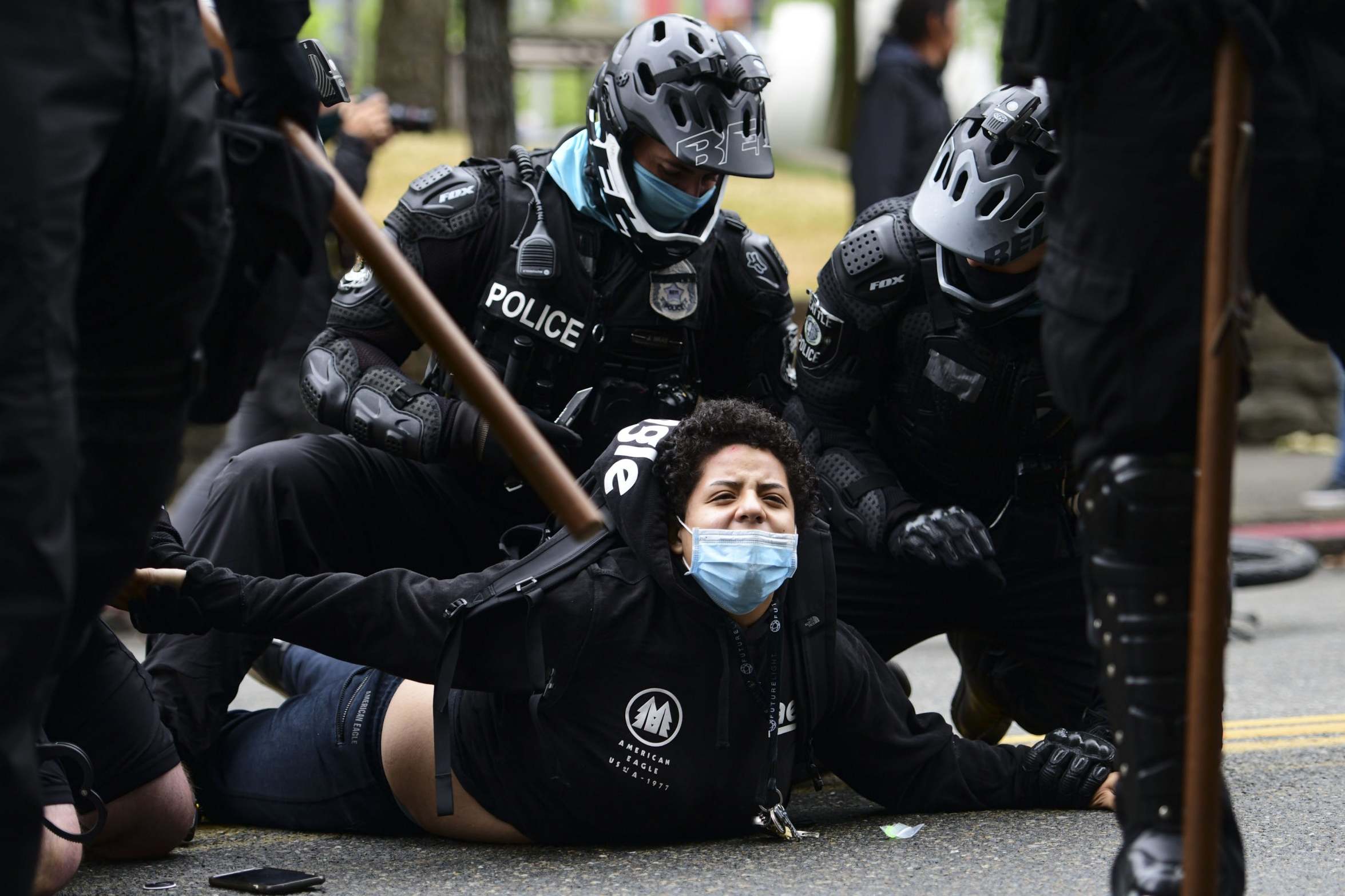No, Mr President, journalists are not the enemy of the people
When John Simpson, the BBC’s world affairs editor, first worked in the US more than half a century ago, reporters were treated as heroes. Now, following the jailing of an Independent correspondent, he delivers a damning indictment of a leader who has spread resentment and bitterness


After 75 years of world dominance, America is visibly in steep decline. Covid-19 has highlighted the inadequacies of a leader who behaves as though he has stepped out of the pages of Tacitus’ lives of the Roman emperors. Panels of historians regularly list him as the worst American president since Warren Harding. By comparison, even George W Bush looks presidential.
It’s hard now to remember how overwhelmingly superior the US once appeared. I first visited America in the summer of 1963, an overawed 18-year-old. Kennedy was still president, and by comparison with what I found in my travels from New York City to Southern California, Britain seemed like an absurd hangover from the past. Our elderly politicians waddled around in morning-suits and top hats, our class system was strangling an entire nation. America was infinitely ahead of us, rich and energetic beyond our dreams.
“When we see something young and adventurous and exciting, we say it’s American,” said an article in a magazine I came across that year. “We’re a young country,” everyone from students to octogenarians told me. At Mount Rushmore, where Donald Trump gave his disturbing, vindictive speech the other day, a preacher from Washington state said, “We’re a city set on a hill, son.” America wasn’t just richer and stronger than any other nation on earth, it was morally superior.
There was a darker side, of course. I hitched a ten-day lift from New Jersey to South Dakota with a lorry-driver who had whacked people for the Truckers’ Union and was happy to tell me about it in gory detail. In Chicago I strayed into North Lawndale and was arrested “for my own safety”. The white cops who picked me up spent the next two hours telling me how they dealt with uppity blacks; except they didn’t say “blacks”. In New York City I watched a demonstration – a race-riot, the next day’s newspapers called it – and saw how brutally black protesters were treated by the police. One man was beaten to the ground, kicked and dragged away unconscious, blood streaming from his head; no mention of that in the next day’s New York Times.
Yet at the time such things seemed like aberrations. This was MAGAland, the golden age which Trump promised and failed to return to. It might be irritating, complacent, and utterly lacking in self-awareness, but it was shored up by genuine moral principles.
As a wannabe journalist, I talked to a wide variety of newspaper and television people who all believed in America’s ethical superiority, even the hard-bitten ones. A few years later, reporters like Woodward and Bernstein became national heroes because they upheld American principles in the face of Nixon’s criminality. That, people thought, was what the media existed to do.
I was allowed to hang out with the New York journalists at the black demonstration I witnessed. The police behaved with wary courtesy towards them, and me. But of course at that stage American presidents didn’t tell their followers that journalists were the enemy of the people, as President Trump has. The message has sunk in; and the US police, often recruited from Trump’s bedrock support, have heard it and acted on it.
Last week, when The Independent’s chief US correspondent, Andrew Buncombe, was arrested for reporting on a Black Lives Matter demonstration in Seattle, the police behaved as savagely as if he were a Guantanamo prisoner. Buncombe’s cool, dispassionate account of the casual brutality with which he and other prisoners were treated was devastating. Under any previous American president, the degeneration of America’s police would have sparked immediate concern. Not under Donald Trump.
Since 2016, an average of a thousand people a year have been shot dead by America’s police: 45 per cent of them white males, a disproportionate 23 per cent black males, 16 per cent Hispanic males. Only 54 per cent of the people killed had guns, and 25 per cent were in visible mental distress. The police in most big American cities have become a paramilitary force, armed and armoured like soldiers. At times of stress they treat their fellow-citizens in the way I have seen American soldiers behave towards suspects in Iraq and Afghanistan – with maximum, unthinking violence. And, like American soldiers, they are very rarely disciplined or punished for it.
Today, America is boiling with resentment and bitterness. No other major country has declined so far, so fast. Under Reagan, Clinton and Obama it was still world-leading, a country to look up to, loved by non-Americans like me. Now its cities are lapsing into violence, while China is taking its place in the outside world.
Survey after survey shows that far fewer foreigners look up to Trump’s America. And even if he is defeated in November, is it really likely that his successor will find an antidote to the poison which has been encouraged to flow into the bloodstream of American society?
John Simpson is the BBC’s world affairs editor
Join our commenting forum
Join thought-provoking conversations, follow other Independent readers and see their replies
Comments
Bookmark popover
Removed from bookmarks